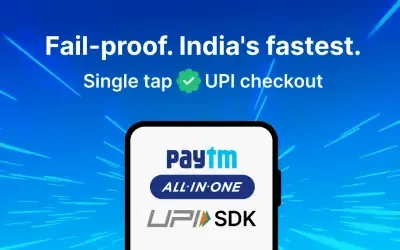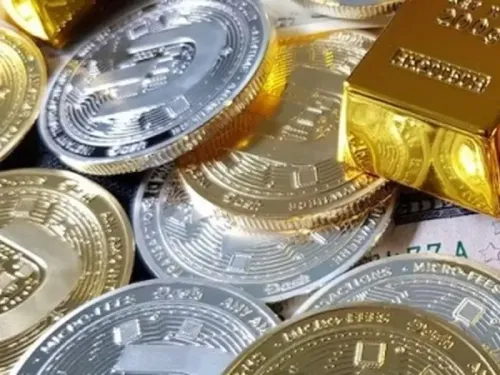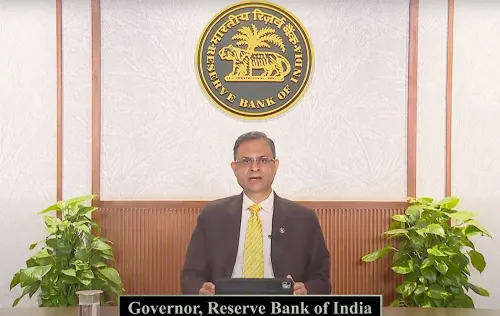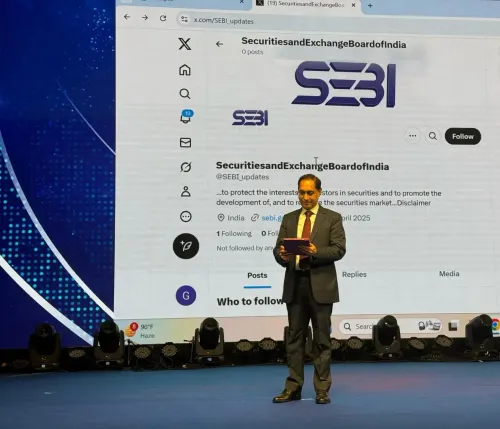Why Did Paytm Shares Plummet After the Government Denied MDR on UPI Transactions?

Synopsis
Key Takeaways
- Paytm shares fell by nearly 10% after government denial of MDR rumors.
- Finance Ministry labels MDR claims as baseless.
- UPI continues to grow; significant transaction milestones reached.
- PhonePe and Google Pay dominate the UPI market.
- Investors remain cautious amid policy uncertainty.
Mumbai, June 12 (NationPress) Shares of One 97 Communications, the parent firm of Paytm, experienced a decline of nearly 10 percent on Thursday, reaching a low of Rs 864.20 on the Bombay Stock Exchange (BSE).
Despite the sharp drop, the stock partially rebounded during the day, trading at Rs 906.75, which still represented a decrease of Rs 53.70 or 5.59 percent on the BSE.
This significant decline followed a strong denial from the Finance Ministry regarding rumors that the government was planning to reinstate a merchant discount rate (MDR) on UPI payments.
MDR refers to a fee that banks or payment service providers like Paytm charge merchants for processing digital payments.
Currently, the government has eliminated MDR fees on UPI transactions to encourage digital payments.
However, some reports suggested the government might impose MDR on high-value UPI transactions, which triggered panic among investors.
In response, the Finance Ministry released a firm statement, labeling these claims as ‘baseless and sensational.’
The ministry emphasized that such rumors instill fear and confusion among the public and are unfounded.
Earlier in March, the Payments Council of India, representing digital payment companies, had reached out to Prime Minister Narendra Modi, advocating for the reinstatement of MDR on UPI and RuPay debit card transactions.
They proposed a 0.3 percent MDR on large merchants utilizing UPI and a nominal fee for all RuPay debit card transactions.
Nonetheless, no definitive action has been taken by the government thus far. In the current landscape, PhonePe and Google Pay dominate the UPI market, holding over 80 percent of it.
In May, UPI achieved a significant milestone, processing 18.68 billion transactions totaling Rs 25.14 lakh crore.
This surpassed April's total of Rs 23.95 lakh crore. Year-over-year, there has been a 33 percent increase in UPI transactions.
On average, UPI processed daily transactions worth Rs 81,106 crore and approximately 602 million in volume throughout May.









